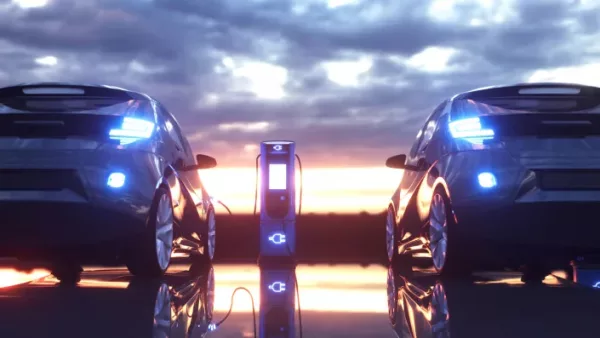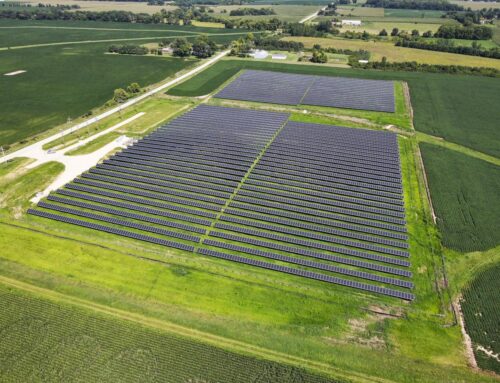EU bans sale of new gas-powered cars by 2035
March 22, 2023
EU bans sale of new gas-powered cars by 2035

Lawmakers in the European Union voted Tuesday to ban the sale of new gasoline-powered cars and vans by 2035, effectively requiring all new cars be electric in Europe in 12 years.
While some lawmakers argued the ban would pose a threat to the European auto industry, a majority saw the move as a way to get ahead of the inevitable transition to electric vehicles and said it would ultimately benefit the continent’s manufacturing industries.
“These targets create clarity for the car industry and stimulate innovation and investments for car manufacturers,” said Jan Huitema, a member of the European Parliament from the Netherlands. Huitema also argued that the measure would save consumers money on fuel costs. Although electric cars are currently more expensive than conventional models, the prices are dropping and are expected to be cost-competitive by 2035.
The 27-nation bloc’s move is the biggest step yet towards eliminating emissions of climate-change-causing greenhouse gases from transportation, a sector that accounts for 37% of global carbon emissions. Cars are the biggest source of transportation emissions, according to the International Energy Agency. The EU had previously set a requirement that new cars have 55% lower carbon emissions than in 2021, and new vans have to cut their emissions in half by 2030.
The state of California, which accounts for the largest share of car sales in the United States, has already set a standard requiring all-electric new car sales in 2035 and many other states are poised to follow their lead.
The phaseout of internal combustion engines is also expected to significantly improve air quality. A number of studies have shown that switching to electric vehicles reduces respiratory-illness-inducing air pollutants such as ozone — even when the electricity to power the cars is generated by fossil fuels.
Theoretically, the new law won’t require only electric vehicles, as a zero-emissions fuel such as green hydrogen — hydrogen made by splitting water using cleanly generated electricity — would also qualify.
When the ban on gas-powered cars by 2035 was first proposed last June, some European climate activists criticized the plan as too weak to meet the Intergovernmental Panel on Climate Change’s goal of cutting emissions in half by 2030.
“Banning new oil-burning cars is the right thing to do, but a 2035 phase-out is much too late to limit global heating to 1.5°C and keeps us locked into oil dependency that bankrolls wars and hurts peoples’ pockets at the pump,” Greenpeace EU transport campaigner Lorelei Limousin said at the time.
The auto industry in Europe and the United States is increasingly supportive of phasing out internal combustion engines. A number of auto manufacturers have submitted a brief in support of California against a lawsuit from oil companies challenging its clean-car rules.
The new rules do not apply to trucks, which account for a disproportionately large share of air and climate pollution. Instead, arguing that the technology of electric trucks is not as well-developed, the European Commission proposed Tuesday proposed new trucks and long-haul buses should reach a 90% reduction in emissions from 2019 levels by 2040.
Even if total car manufacturing in Europe does not decrease as a result of the law, some auto company employees will be displaced in the transition.
Ford Motor Company announced on Tuesday that it was cutting about 11% of its workforce in Europe over the next three years as it shifts resources from factories currently building gas-powered vehicles to ones building EVs.
The U.S. has yet to set any specific date for banning the sale of new gas-powered cars, but it has set increasingly stringent fuel-efficiency standards for the rest of this decade and the Biden administration and Congress approved significant subsidies for EV purchases by low- and middle-income households in the Inflation Reduction Act of 2022. The Department of Transportation is currently building out a national network of EV charging stations.
Search
RECENT PRESS RELEASES
Related Post




